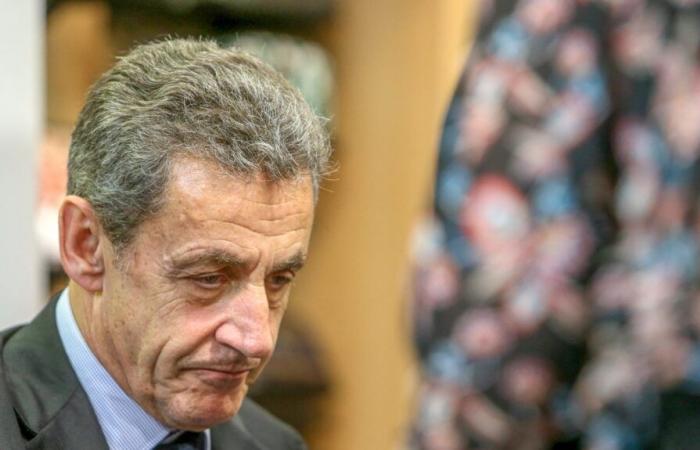Meeting for the first time in 1959, the European Court of Human Rights (ECHR) has proven itself to serve the more than 800 million citizens of the 46 signatory countries of the European Convention on Human Rights who have the right to seize it once all national remedies have been exhausted. It is The Last Judgmentas indicated by the title of the book dedicated to him by one of his finest connoisseurs, Hervé Asquin. The former director of the Agence France Press office in Strasbourg, where the ECHR has its headquarters, knows its mysteries perfectly.
The Court has its roots in the history of human rights. It’s an idea that was born in the heart of the Second World War. While London had just suffered the Blitz, Churchill began to talk about this European project of a United States of Europe. And it is therefore in this Court and its principles that the former President of the Republic, Nicolas Sarkozy, bases his last hopes to erase the one-year prison sentence for “corruption” and “influence peddling” made definitive. by the dismissal of his cassation appeal, on December 18, 2024.
Russia excluded in 2022 following the invasion of Ukraine
The Council of Europe, the parent house of the Court, which also sits in Strasbourg, is a bit of a symbol. This kind of pan-European organization which, unlike the European Union from which it is distinct, covered practically the entire European continent. Even Russia, which was only excluded in 2022 following the invasion of Ukraine. Previously, Alexeï Navalny had won his case before the Court even though he was being prosecuted by Russian justice. A symbolic victory ultimately in vain.
The ECHR draws on the diversity of the forty-six judges from the forty-six member states and is the subject of accusations, notably from the conservative right and the far right, who rightly criticize it for its progressive character.
Hervé Asquin nuance: the ECHR “makes decisions in light of the state of society and at the time it judges. And so it will always be too progressive for the conservatives and too timid for the progressives”. He takes the recent example of climate justice with the conviction of Switzerland.
Climate justice
“Basicallyhe explains, the Court says, and this is really something completely new and essential, that climate justice is not only justice for present times, but also justice for the future. This is a major turning point for international justice, because it recognizes the duty to preserve the environment and the climate for future generations..
It is, he adds, a step forward “as important as the decisions that were taken on surrogacy by allowing the children of surrogate mothers to be adopted”. The situation was completely blocked in France and this is also one of the virtues of international justice and the Court in particular, underlines Hervé Asquin: “It allows many jurists from many countries to be brought together and there is therefore collective reflection and not just national reflection”.
The other area in which the court is making progress is technologies, digital technology and the preservation of individual freedoms. The Court, insists Hervé Asquin, “reminds us that there is a principle in law which is very simple, which is called the hierarchy of legal norms and that from the moment we are part of the institution, we must obey it and that is its very essence ».
International courts are not there to please Member States: they sometimes condemn them and this is the very principle of an international court. To question membership in these institutions and the legal superiority of the Court is to call into question the entire international order, which has been built over the years and not without difficulty since the Second World War. “It took decades to build this new international order and the people who want to leave it want to erase it with the stroke of a pen”insists Hervé Asquin.
Note that although critical of it, sovereignists do not hesitate to also use the judicial route of the ECHR. A paradox that has not been denied throughout history. In France alone, Jean-Marie Le Pen has seized it half a dozen times, while calling for an exit from European institutions. Ditto for Éric Zemmour.
“It is the detractors of the Court who are sometimes the first to seize it when their personal interests or the interests of their clan or their party are at stake”summarizes Hervé Asquin.
“The final judgment, the European Court of Human Rights – Final recourse against authoritarian and populist excesses”, 2024, Archipelago, 200 pages, €20.
landmarks
> Since its creation in 1959, the Court has delivered more than 16,000 judgments which have led to numerous changes to legislation and strengthened the rule of law in Europe.
> The provision of the Convention which has given rise to the greatest number of violations is Article 6. They concern firstly the right to a fair trial, then the right to a judgment within a reasonable time.
> Next come Article 1 of Additional Protocol No. 1 (protection of property) and Article 5 of the Convention (right to liberty and security).
> The Court also ruled on numerous social issues such as abortion, assisted suicide, strip searches, domestic slavery, adoption by homosexuals, the wearing of religious symbols in schools, the recognition of transsexuals, the protection of journalistic sources and even disputes affecting the environment.






